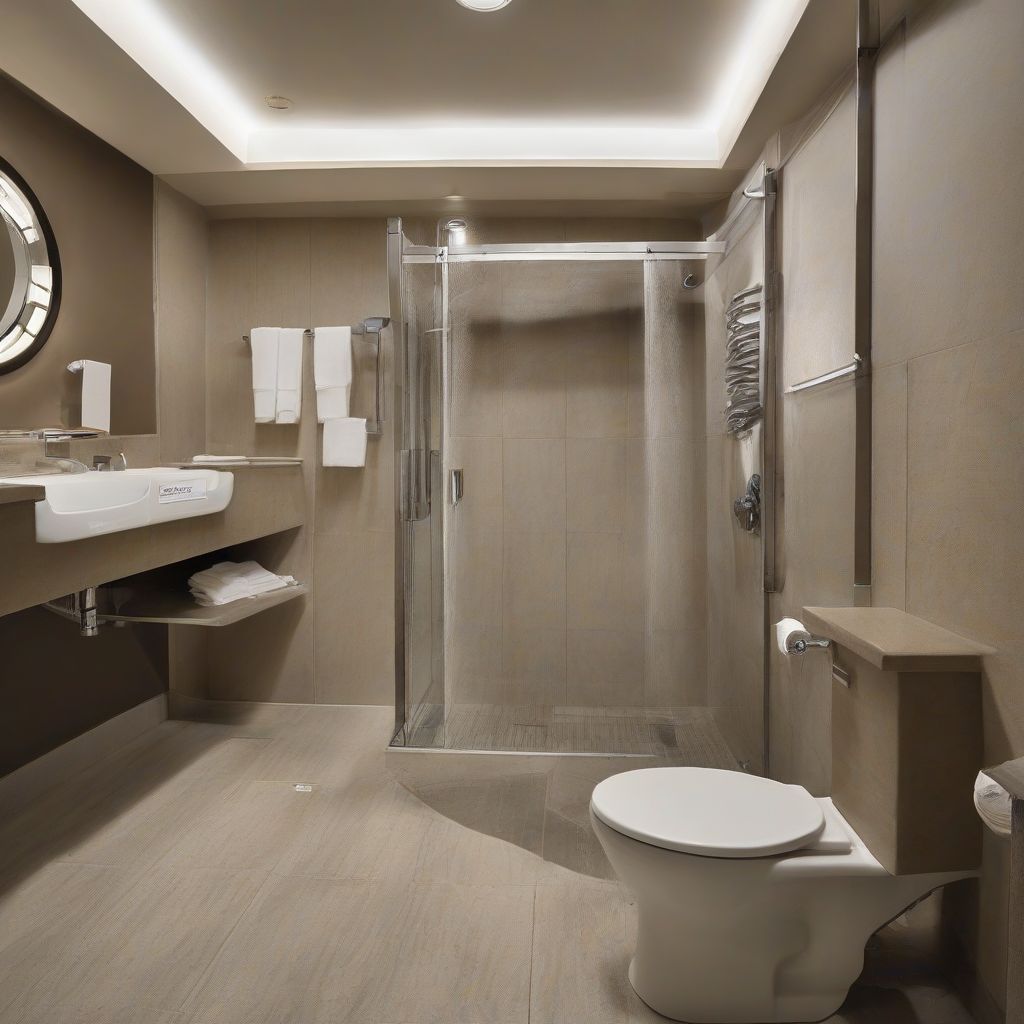Imagine this: you’re drifting off to sleep in a luxurious hotel room, the crisp linens and plush pillows enveloping you in comfort. But did you know that the hospitality industry, while providing such luxurious experiences, also has a significant environmental impact?
The good news is that hotels are increasingly recognizing the importance of water and energy conservation, not just for the planet but also for their bottom line. Let’s dive into why sustainable practices are crucial for hotels and explore how they can implement effective conservation strategies.
Why Water and Energy Conservation Matters in the Hospitality Industry
The hospitality industry, with its high demand for energy and water, plays a significant role in global resource consumption. From heated pools and 24/7 air conditioning to laundry services and restaurant operations, hotels utilize vast amounts of resources on a daily basis. Here’s why implementing conservation measures is paramount:
1. Environmental Responsibility:
- Water Stress: Many regions face water scarcity, and hotels, often located in water-stressed areas, have a responsibility to minimize their water footprint.
- Climate Change: Energy production is a major contributor to greenhouse gas emissions. By reducing energy use, hotels can significantly lower their carbon footprint and combat climate change.
2. Economic Benefits:
- Cost Savings: Water and energy efficiency measures directly translate into lower utility bills for hotels, positively impacting their bottom line.
- Enhanced Brand Image: In today’s environmentally conscious world, guests are increasingly drawn to businesses that prioritize sustainability. Hotels that implement eco-friendly practices can enhance their brand reputation and attract environmentally conscious travelers.
3. Regulatory Compliance:
- Government Regulations: Many countries are implementing stricter regulations on water and energy use. Hotels that proactively adopt conservation practices will be better positioned to comply with these regulations and avoid potential penalties.
 Hotel Water Conservation
Hotel Water Conservation
Practical Strategies for Water Conservation in Hotels
Hotels can implement a variety of practical and effective strategies to significantly reduce their water consumption:
1. Low-Flow Fixtures:
- Showerheads and Faucets: Installing low-flow showerheads and faucets can reduce water usage by up to 50% without compromising water pressure.
- Toilets: Replacing older toilets with low-flush or dual-flush models can save thousands of gallons of water per year.
2. Linen and Towel Reuse Programs:
- Encouraging Guest Participation: Hotels can encourage guests to reuse their towels and linens by providing incentives or simply explaining the environmental benefits.
- Optimized Laundry Practices: Implementing water-efficient washing machines and optimizing laundry cycles can further reduce water consumption.
3. Landscape and Irrigation:
- Drought-Tolerant Landscaping: Choosing drought-tolerant plants and grasses reduces the need for frequent watering.
- Efficient Irrigation Systems: Installing drip irrigation systems or utilizing smart irrigation controllers can deliver water directly to plant roots, minimizing waste.
4. Water Leak Detection and Repair:
- Regular Inspections: Implementing a regular schedule for inspecting and repairing leaks in plumbing fixtures, pipes, and irrigation systems can prevent significant water loss.
- Water Meter Monitoring: Monitoring water meter readings regularly can help identify leaks early on.
Effective Energy Conservation Measures for Hotels
Reducing energy consumption is equally crucial for hotels. Here are some practical strategies:
1. Energy-Efficient Lighting:
- LED Technology: Switching to LED lighting throughout the hotel can drastically reduce energy usage compared to traditional incandescent bulbs.
- Occupancy Sensors: Installing occupancy sensors in guest rooms, hallways, and other areas ensures lights are only on when needed.
2. HVAC Optimization:
- Programmable Thermostats: Utilizing programmable thermostats allows hotels to adjust temperature settings based on occupancy and time of day, optimizing energy use.
- Regular HVAC Maintenance: Regularly maintaining HVAC systems ensures they operate at peak efficiency, reducing energy waste.
3. Water Heating Efficiency:
- Solar Water Heating: Consider installing solar water heating systems to utilize renewable energy for water heating needs.
- Insulating Water Pipes: Insulating hot water pipes reduces heat loss and minimizes the energy required to maintain water temperature.
4. Kitchen and Laundry Efficiency:
- Energy-Star Appliances: Using Energy Star-certified kitchen appliances and laundry equipment ensures optimal energy efficiency.
- Optimized Cooking Practices: Implementing energy-efficient cooking techniques, such as using convection ovens and scheduling dishwashing during off-peak hours, can further reduce energy consumption.
Leading by Example: Case Studies of Sustainable Hotels
Many hotels around the world are leading the charge in sustainability, demonstrating that luxury and environmental responsibility can go hand in hand:
-
The Bardessono, California: This luxury hotel features solar power, geothermal heating and cooling, and a 100,000-gallon rainwater harvesting system.
-
The Hotel Verde, South Africa: Known as Africa’s greenest hotel, Hotel Verde boasts a greywater recycling system, solar panels, and a bio-fuel boiler that utilizes recycled cooking oil.
These examples showcase how hotels can successfully integrate sustainable practices into their operations, inspiring others in the industry to follow suit.
 Energy Efficient Hotel Room
Energy Efficient Hotel Room
[amazon bestseller=”sustainable hotel management”]
Conclusion: A Sustainable Future for Hospitality
The hospitality industry has a unique opportunity and responsibility to embrace water and energy conservation. By implementing the strategies outlined in this guide, hotels can not only minimize their environmental impact but also reap significant economic benefits and enhance their brand reputation. Let’s work together to create a more sustainable future for the hospitality industry, one where luxury and responsibility go hand in hand.
What steps will you take to make your next hotel stay more eco-friendly? Share your thoughts and travel tips in the comments below!
